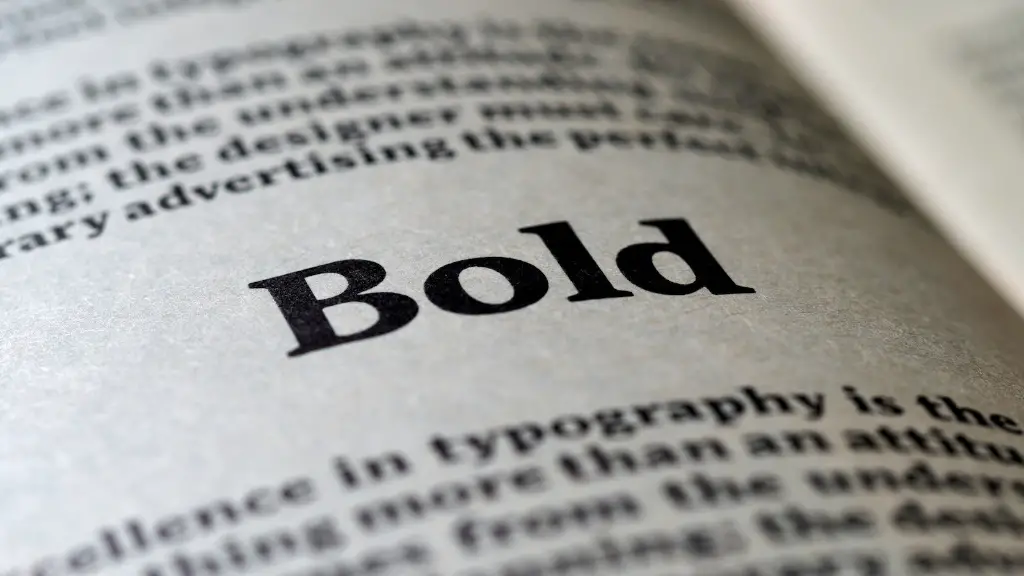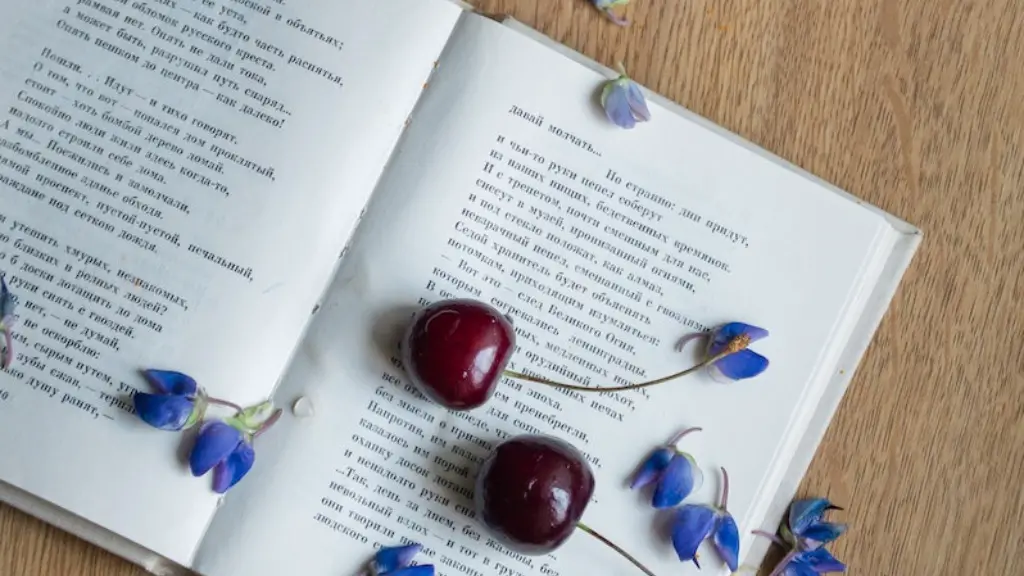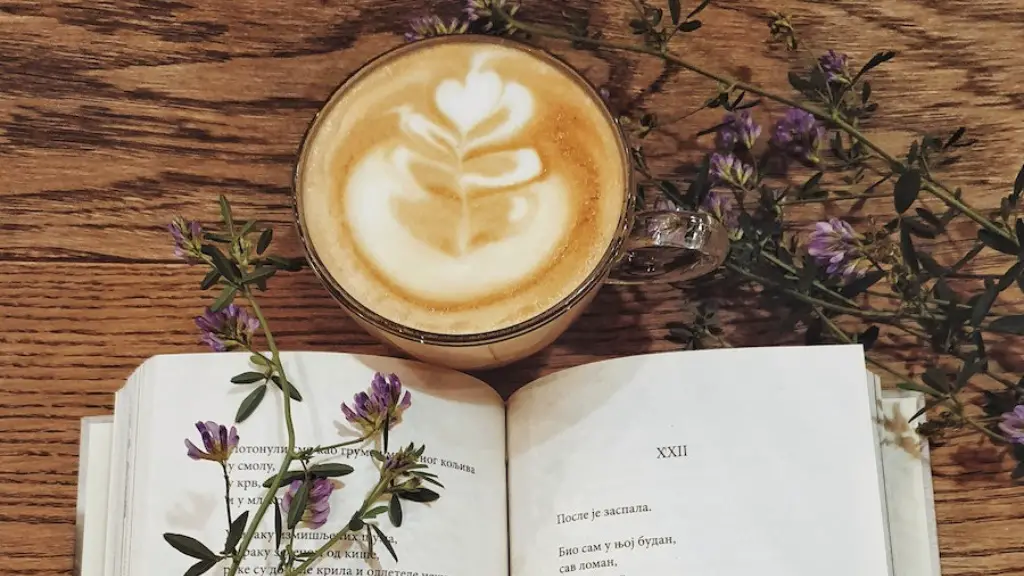The use of meter in poetry is essential. While free verse poetry is becoming increasingly popular, there is still an undeniable power and beauty in structured poetry that relies on meter and rhyme. While meter has been used in poetry for centuries, the importance it holds has not diminished – if anything, it is more vital than ever in the world of poetry. Good metrical structure can elevate a poem to a whole new level, helping to shape the poem’s rhythm and form and enabling the poet to communicate their message in a clear and powerful way.
Meter is established through counting out a poem’s syllables to create rhythmic patterns. This process is known as scansion and is the foundation of poetic form. Meter is used to create a sense of harmony, balance, and regularity in poetry. Through the repetition of certain syllables, meters create a consistent sound, making them easier to remember and guaranteeing that readers can recuperate the poem’s music. The use of meter can also heighten the poet’s meaning and make certain words stand out more than others. Meter is thus a key factor in engaging the reader, in shaping the way they read the poem, and in creating an emotional response.
An understanding of meter can help poets create patterns, either through the sound of the words themselves or through the meaning of their message. Choosing the right meter can determine how quickly, or how slowly, a poem describes an idea. Skilled poets are able to utilize meter to convey the rhythm of their thoughts, or to add complexity or precision to their language. It allows them to set the pace of their poem and to craft it in a way that will engage their reader. Meter can also be used to emphasize specific elements of a poem or to draw attention to a particular idea or phrase. This is especially true of lyrical poetry, in which poets strive for an effortless flow.
The use of meter can also create a sense of poetic meter and beauty in a poem. For example, a six syllable line of poetry will often create a pattern of repetition, which not only makes the poem easier to remember and recite, but also gives the poem musicality and highlights certain words or images. And while free verse poetry often contains a steady beat – albeit one that is irregular and varying – meter maintains the same beat with each syllable, ensuring there is a clear rhythm to the poem. In addition, the use of specific meter can add elements of reverence, tenderness, and passion to the poem, creating a connection between the words and the emotions of the poem.
Meter also plays a key role in determining a poem’s structure. Through its use of rhythms, meters can give structure to a poem and establish a form for it to follow. This structure can help a poet organize their poem and create strong images, as well as focus their ideas into a cohesive narrative. Meter can also help a poet emphasize a particular word or phrase, or it can inject their poem with a sense of pacing and intensity.
Finally, the use of meter in a poem can be used to create a sense of unity between different ideas and elements. It can be used to link different parts of a poem together, creating a narrative arc, while also keeping an overall theme in focus. The use of meter can act as a kind of signature that ties a poem together, creating a sense of closure and coherence at the same time.
Rhyme
The use of rhyme is often closely related to meter in poetry. Rhyme is a formal element of poetry, referring to the repetition of words which sound the same at the end of a line. Rhyme works differently from meter in that it acts as a choice rather than an inherent element of a poem. It can be used to emphasize particular words or ideas, or to link different parts of a poem together. In addition, the use of rhyme can bring a sense of musicality to a poem, adding texture and a heightened level of beauty. Thus, rhyme works hand in hand with meter to strengthen a poem and make it more engaging for readers.
Ritual
The use of meter and rhyme in poetry is often associated with ritualistic practices. This is largely due to the fact that reciting poetry by heart involves the repeating of similar or identical words, which can make memorizing large poems easier. In traditional cultures, reciting poetry has been used as a ritual of sorts, with meter and rhyme helping to re-establish a sense of shared experience and community. Thus, the use of meter and rhyme in poetry can help create a sense of kinship between poets and between readers, allowing them to connect on a deeper level.
Performance
The use of meter in poetry can also be employed for a performance purpose. By giving a consistent and steady beat to a poem, meter can help establish a cadence, allowing the poet to emphasize certain elements and create a unique performance. In addition, meter can be used to illustrate the emotions of a poem, helping to create a more powerful message and a stronger connection with the audience.
Influence
The use of meter and rhyme can also heavily influence the intended audience of a poem. Because of the inherent musicality of meter, it can help engage the reader, allowing them to develop an emotional connection with the poem. This can be especially true of lyrical poems, where the use of meter can draw the reader into the poet’s world, allowing them to experience the poem in a more powerful way. In this way, meter can be used to create a shared experience between poets and readers, allowing the reader to gain an understanding of the poet’s mindset and worldview.
Writing Style
Finally, the use of meter and rhyme can shape and influence a poet’s writing style. By creating a structure within which to write, meter can help to focus a poet’s ideas, enabling them to create a clear and coherent narrative. In addition, the use of meter can help to refine a poem, allowing a poet to craft and edit their work in an efficient way. And while the use of meter and rhyme is not required to write poetry, they are essential tools that can help a poet communicate their ideas in a more powerful and engaging way.


